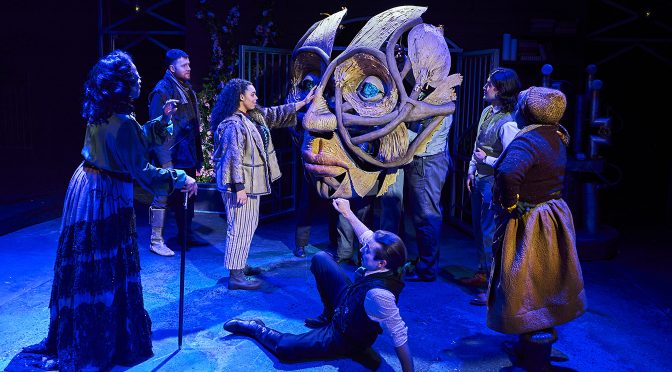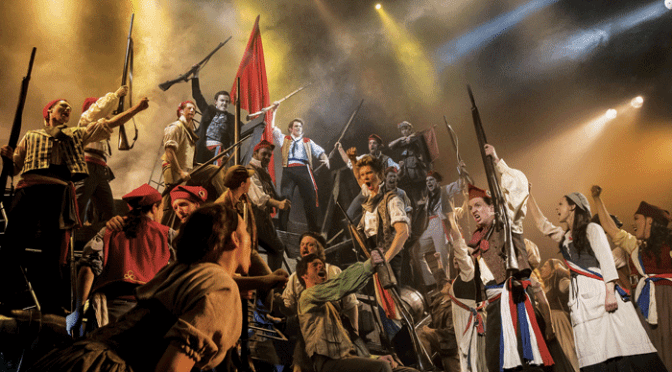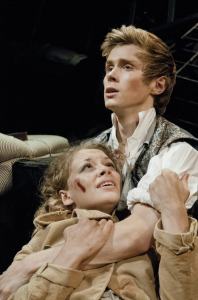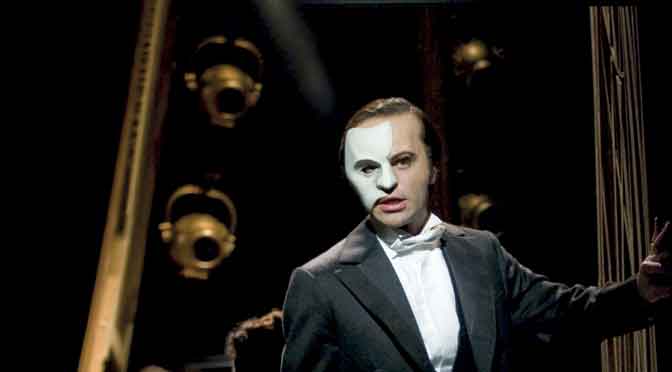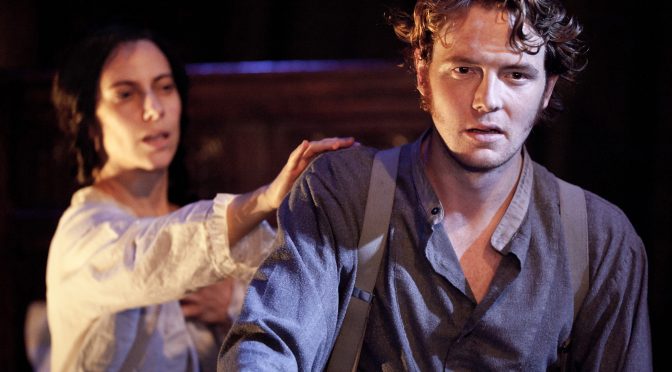This ambitious new show makes a valiant effort in a tricky category – the family musical. Inspired, like the Disney film, by Goethe’s poem, we get the famous brooms, brought to the stage with the aid of Maia Kirkman-Richards’ puppetry design. But the show aims to please more than children, unfortunately to its detriment.
Our apprentice is a feisty young woman called Eva, a huge role for Mary Moore, and the sorcerer is her Dad, played by David Thaxton. It’s a good twist to have a “little anarchist” as the star, and her father is a magician far from the usual stereotypes. Both performers have strong voices and acquit themselves well.
Problems comes with writer Richard Hough’s characterisation. The exploration of the troubled family relationship is predictable and laboured. Eva’s coming-of-age story is poorly handled, her father’s perspective shoe-horned in. The transformation Eva sings about isn’t one I’m sure we need… I quite like her from the start! That said, for a young woman with magical talents who manages to save the world (sorry about the plot spoiler), Eva needs an awful lot of validation. A burgeoning love affair (with a poorly drawn character Yazdan Qafouri tries hard at) further slows things down.
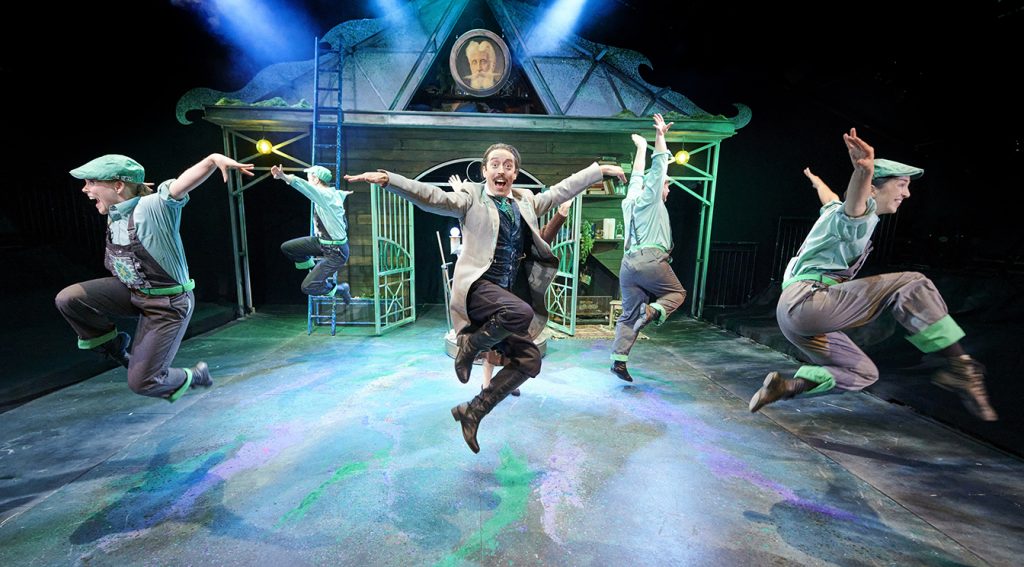
On top of this family drama, The Sorcerer’s Apprentice is also a climate change parable. The Northern Lights, the source of magical power, are being exploited… with dangerous consequences. The too simple scenario at least gives rise to some unusual villains. Marc Pickering is excellent as factory owner Fabian Lydekker: in a show so lacking in humour, he’s a real highlight. Dawn Hope’s role as mother Lydekker is hampered by the poor comedy, and plot twists that come too late, but is admirably far from cartoonish.
With so much going on, including the neat idea that Eva and her father can hear “the music of the aurora” the score struggles to hold the show together. Ben Morales Frost’s music tries hard; he knows variety is needed but a wish to be epic creeps into most pieces and the result feels self-conscious and generic. The lyrics are better – they scan well. Indeed, it’s only with Eva’s love interest that Hough stumbles.
More than usually, The Sorcerer’s Apprentice is a show I feel should be judged on stage. It’s clear that Scarlet Wilderink’s work directing the puppets would be better appreciated live. Likewise with the magic tricks and Steven Harris’ choreography, including a very neat treatment of the Northern Lights. And I’d love to know if Pickering’s big number – surely a show-stopper – is the success I’d bet on. Director Charlotte Westenra, whose work is impeccable, has assembled a talented team that could create the atmosphere needed to make the show magical. Although the production and filming are accomplished, I’d like to feel this is a training run for the real thing.
Until 14 March 2021
Photos by Geraint Lewis

